Power Screed vs. Hand Screed vs. Power Trowel: Best Bet
Concrete finishing is an essential step in any construction project that involves concrete. It is the process of smoothing, leveling, and hardening the surface of the concrete after it has been poured. Concrete finishing can improve the appearance, durability, and performance of the concrete, as well as prevent cracking, scaling, and water damage.
However, concrete finishing is not a one-size-fits-all task. Depending on the size, shape, and purpose of the concrete surface, different tools may be required to achieve the desired result. In this article, we will introduce you to three main types of concrete finishing tools: power screed, hand screed, and power trowel. We will explain their definition, functionality, advantages, and limitations, and help you decide which one is best suited for your project.
vibrating concrete screed,start from $300
Contents
Power Screed
A power screed is a motorized device that vibrates a long metal blade across the surface of the wet concrete. The blade pushes the excess concrete and air bubbles to the sides, leaving behind a flat and smooth surface. Power screeds can be either self-propelled or manually pushed by the operator.
There are different types of power screeds available, such as single-beam, double-beam, roller, and laser. Single-beam and double-beam power screeds use a single or double metal blade, respectively, to level the concrete. Roller power screeds use a rotating tube instead of a blade, which can reduce the friction and drag on the concrete. Laser power screeds use a laser-guided system to ensure the accuracy and precision of the screeding process.
Advantages of using power screed
Some of the advantages of using a power screed are:
- Speed and efficiency: Power screeds can cover large areas of concrete in a short time, reducing the labor and time required for finishing.
- Consistency in finish: Power screeds can produce a uniform and even surface, eliminating the risk of low spots, high spots, or undulations.
- Reduced physical strain on the operator: Power screeds can reduce the fatigue and strain on the operator’s back, arms, and legs, as they do not require much manual effort or bending.
Limitations of using power screed
Some of the limitations of using a power screed are:
- Initial cost and maintenance: Power screeds are more expensive than hand screeds, and they require regular maintenance and servicing to ensure their optimal performance and longevity.
- Limited maneuverability in tight spaces: Power screeds are not very flexible or agile, and they may have difficulty accessing corners, edges, or small areas of concrete.
Hand Screed
A hand screed is a simple tool that consists of a straightedge, usually made of wood, metal, or aluminum, that is manually dragged across the surface of the wet concrete. The straightedge levels the concrete by cutting off the excess material and filling in the low spots. Hand screeds can be operated by one or two people, depending on the length of the straightedge.
There are various types of hand screeds, such as straightedge, roller screed, darby, and bull float. Straightedge hand screeds are the most basic and common type, and they can be used for any concrete surface. Roller screeds are similar to power screeds, but they are manually operated and have smaller rollers. Darbies and bull floats are hand screeds that have a wider and flatter blade, and they are used to smooth and compact the surface of the concrete after it has been leveled.
Advantages of using hand screed
Some of the advantages of using a hand screed are:
- Affordability: Hand screeds are much cheaper than power screeds, and they do not require any fuel, electricity, or maintenance.
- Ideal for small projects or tight spaces: Hand screeds are more versatile and adaptable than power screeds, and they can be used for any size or shape of concrete surface. They can also reach corners, edges, and narrow spaces that power screeds cannot.
Limitations of using hand screed
Some of the limitations of using a hand screed are:
- Labor-intensive: Hand screeds require more physical effort and skill from the operator, and they can be tiring and exhausting, especially for large or thick concrete surfaces.
- Potential for uneven finishes: Hand screeds may not produce a consistent or smooth surface, as they depend on the operator’s accuracy and technique. They may also leave behind marks, ridges, or holes on the concrete.
Power Trowel
A power trowel is a motorized device that spins one or more metal blades over the surface of the hardened concrete. The blades apply pressure and friction to the concrete, creating a smooth and polished finish. Power trowels can be either walk-behind or ride-on, depending on the size and power of the machine.
There are different types of power trowels, such as standard, edging, and finishing. Standard power trowels are the most common and versatile type, and they can be used for any concrete surface. Edging power trowels are designed to work on the edges and corners of the concrete, where standard power trowels cannot reach. Finishing power trowels are used to apply the final touches and refinements to the concrete surface, such as burnishing or sealing.
Advantage of using power trowel
Some of the advantages of using a power trowel are:
- Smooth and polished finish: Power trowels can produce a high-quality and aesthetically pleasing finish, with a glossy and shiny appearance. Power trowels can also increase the durability and strength of the concrete, as they close the pores and prevent water penetration.
- Increased productivity on larger surfaces: Power trowels can cover a lot of ground in a short time, making them ideal for large or industrial concrete surfaces. Power trowels can also reduce the labor and time required for finishing.
Limitations of using power trowel
Some of the limitations of using a power trowel are:
- Higher upfront cost: Power trowels are more expensive than hand screeds or power screeds, and they also require more fuel, electricity, and maintenance.
- Skill required to operate effectively: Power trowels require more training and experience from the operator, as they involve more variables and adjustments, such as speed, angle, pressure, and timing. Power trowels can also cause damage or defects to the concrete if not used properly, such as over-troweling, burning, or cracking.
Factors to Consider in Choosing the Right Tool
As you can see, each concrete finishing tool has its own pros and cons, and there is no definitive answer to which one is the best. The choice of the right tool depends on several factors, such as:
Project size and scope
The size and shape of the concrete surface, as well as the thickness and type of the concrete mix, will determine the most suitable tool for the job. For example, power screeds are more efficient for large and flat surfaces, while hand screeds are more flexible for small and irregular surfaces. Power trowels are more effective for thick and hard concrete, while hand screeds are gentler for thin and soft concrete.
Budget considerations
The cost of the tool, as well as the fuel, electricity, and maintenance expenses, will affect the affordability and profitability of the project. For example, hand screeds are more economical for low-budget or occasional projects, while power screeds and power trowels are more worthwhile for high-budget or frequent projects.
Desired finish quality
The finish quality refers to the smoothness, levelness, and appearance of the concrete surface, as well as its durability and performance. Different tools can produce different finish qualities, depending on the project requirements and specifications. For example, power trowels can create a smooth and glossy finish, while hand screeds can create a rough and textured finish.
Conclusions
Concrete finishing is a vital and valuable step in any concrete project, and choosing the right tool for the job can make a big difference in the outcome and success of the project.
In this article, we have introduced you to three main types of concrete finishing tools: power screed, hand screed, and power trowel. We have explained their definition, functionality, advantages, and limitations, and we have given you
vibrating screed,start from $300
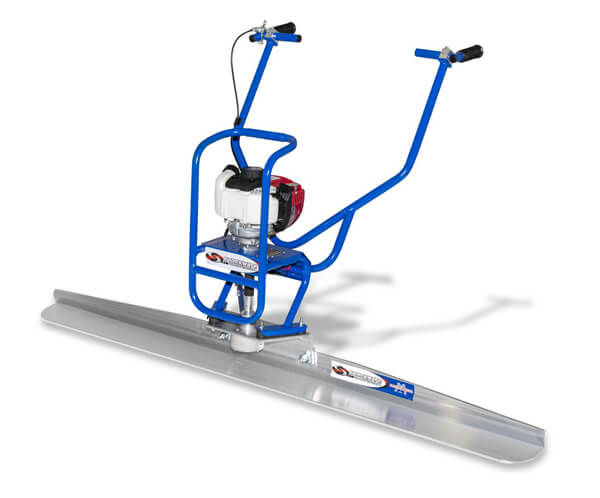
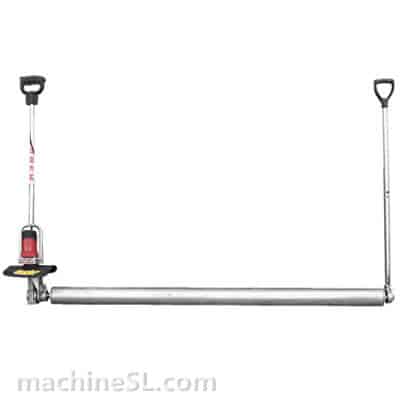
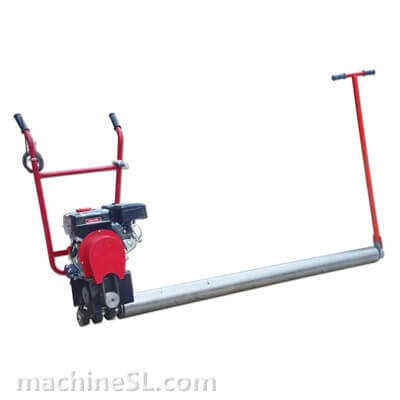
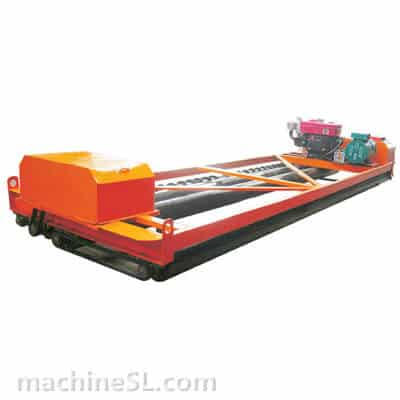
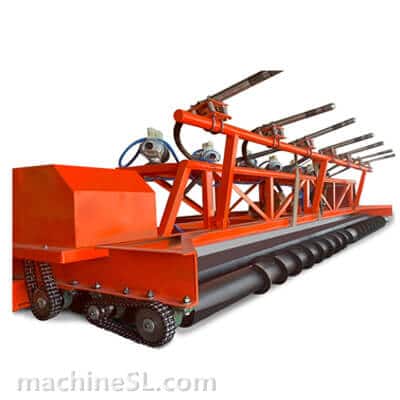
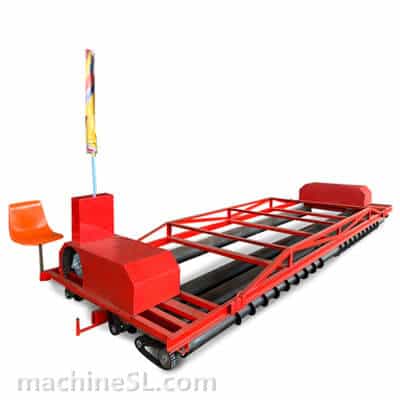
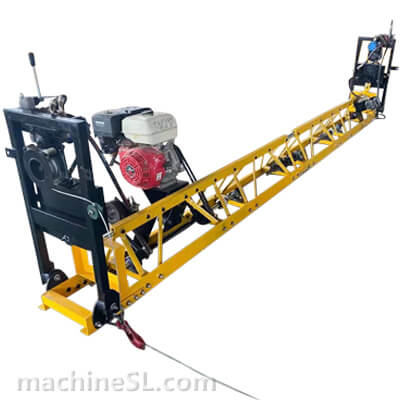
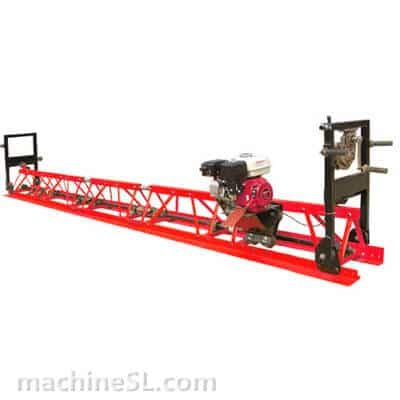
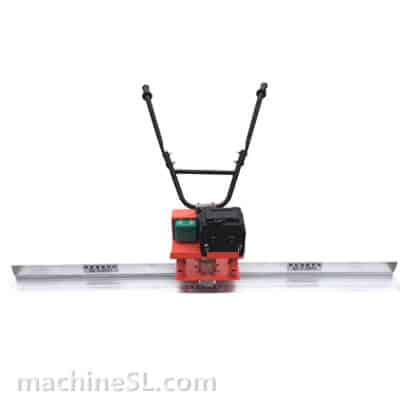
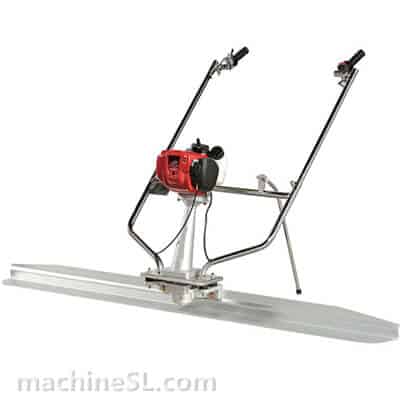
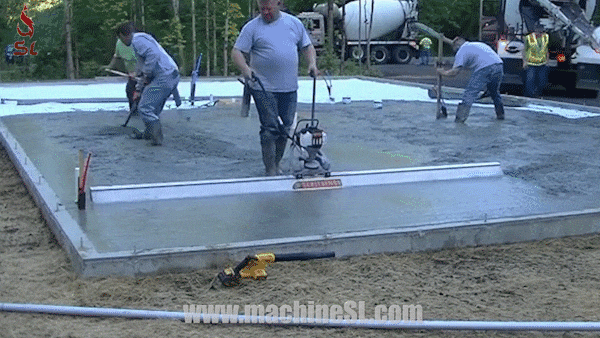


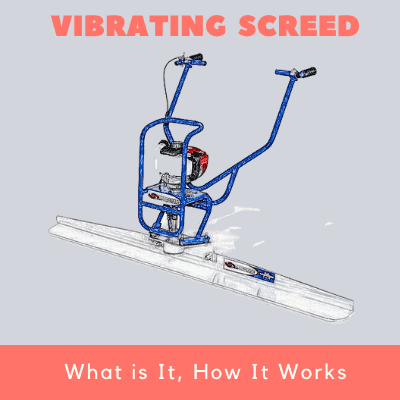
Leave A Comment